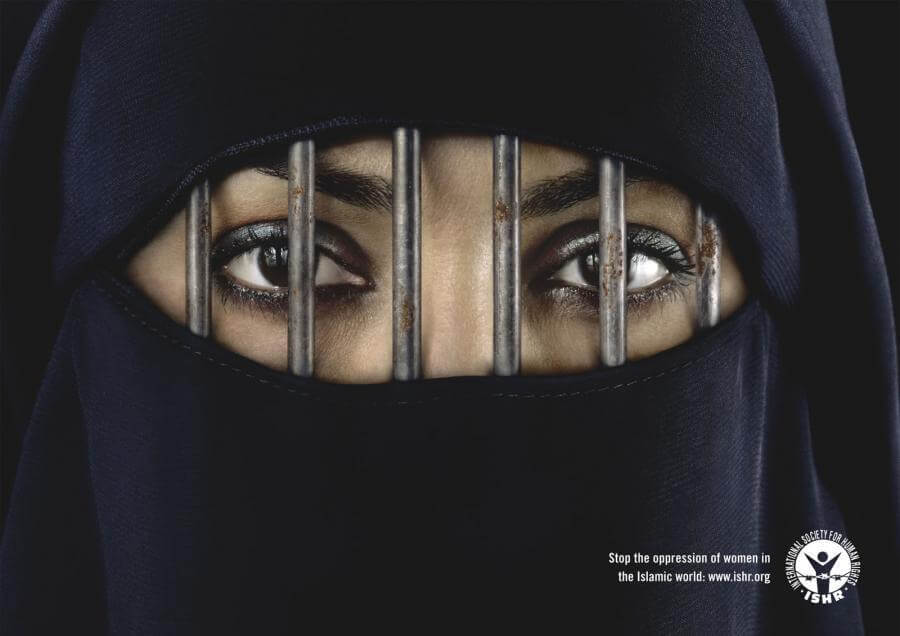Donia Khafaga
Cairo, Egypt

Writers often use their novels as a social commentary to criticize a certain cultural context and advocate for change. Today women are still trying to attain equality and freedom. In many Arab countries, men are endowed with freedom and opportunities while women remain silenced and marginalized. One of the most notable authors criticizing this issue is Nawal el Saadawi in her novel Woman at Point Zero. This novel tells the story of Firdaus, who is struggling to attain dignity in a chauvinistic society.
The writer showcases how women are perceived as a weaker sex in Arab society through the domestic violence unleashed on them by men. Firdaus recounts how her father “would beat his wife and make her bite the dust each night” and describes how her husband would “hit her with his heavy stick until blood ran from her nose and ears.”1,2 The image of blood running like water from her body heightens the physical injuries she sustains from this violence. Firdaus confirms the prevalence of domestic violence in this setting: “My uncle told me all husbands beat their wives.”3 Moreover, Firdaus is physically assaulted by Bayoumi as“he jumped and slapped her on the face” when she insists on looking for a job with her secondary certificate instead of performing domestic chores.4
Within the cultural context of this novel, women are enslaved since they are regarded as inferior to men. When Firdaus is arguing with Marzouk who wants to be her pimp, she says, “I want to be one of the masters and not one of the slaves.”5 The pimp answers,“How can you be one of the masters? A woman on her own cannot be a master . . . can’t you see you are asking for the impossible?”6 The pimp belittles Firdaus by assuring her it is impossible for a woman to be a master. Firdaus further gives us insight into this enslavement as she witnesses her mother washing her husband’s feet in summer when she “sat on his feet with a tin mug in her hand as she washed his legs with cold water.”7 Likewise, the brutality and inhumanity of Firdaus’ husband evokes pathos in the reader as Firdaus explains that each time they sat for dinner “he kept looking at her plate while she ate and if she left anything over he picked it up, put it in his mouth . . .”8 Paradoxically, Firdaus says she would rather be a prostitute than remain “an enslaved wife” because at least then she would be paid for her services and choose whom to sleep with. The writer’s aim in portraying women as slaves is to advocate their liberation from the male domination profoundly rooted in the culture.
The professional and financial inequality between the two genders further contributes to women’s oppression in this socio-cultural setting. Men can become financially empowered while women do not even have access to a proper education, as they are considered less productive. This is evident in Firdaus’ uncle’s reaction when his wife suggests “sending her to the university.”9 Her uncle was not in favor of this idea and retorted, “To the university? To a place where she will be sitting side by side with men? . . . to mix in the company of men?!”10 Firdaus is denied a proper education in the university because of her uncle’s male chauvinism. Furthermore, when Firdaus told Bayoumi “but I must work” and consequently “he jumped and slapped her on the face,” this reiterates and further augments women’s oppression and inequality in job opportunities.11,12
Women are also portrayed as lacking freedom of expression because they are regarded as socially insignificant. This is demonstrated when Bayoumi silences Firdaus to deter her from having such a “superior” thought and to let her know that financial freedom is only reserved for men. Firdaus also recalls her aunt saying to her husband, “. . . If he marries Firdaus she will have a good life with him . . .”13 Firdaus is obliged to marry without being allowed to have an opinion. At another time Sharifa and Fawzi quarrel over who is taking Firdaus. “You’re not taking her,” “I am taking her . . .” 14 Firdaus is not given the right to choose for herself, but is treated as if she is their property. Nawal el Saadawi criticizes this chauvinistic attitude and advocates for these oppressed, silenced women.
In conclusion, throughout the novel Woman at Point Zero by Nawal el Saadawi, women are victimized by their male counterparts as domestic violence and enslavement is unleashed on them. The critique of women’s inequality and restricted freedom of expression parallels the author’s own feminist beliefs. The purpose in portraying these issues is to criticize a misogynistic society by satirizing men’s chauvinism. Nawal el Saadawi is advocating the liberation of Arab women and the need for them to attain their rights from the yoke of male domination.
References
- Nawal el Saadawi, Woman at Point Zero, ZED books, 1983, page 10
- Ibid, page 47
- Ibid, page 102
- Ibid, page 52
- Nawal el Saadawi, Woman at Point Zero, ZED books, 1983, page 103
- Ibid, page 104
- Ibid, page 16
- Ibid, page 45
- Nawal el Saadawi, Woman at Point Zero, ZED books, 1983, page 37
- Ibid, page 37
- Ibid, page 52
- Ibid, page 52
- Ibid, page 37
- Ibid, page 63
DONIA ATEF KHAFAGA was born in Cairo, Egypt and received a degree in architecture from the University of Manchester in England. She is interested in cultures, education, and society. She works as an architect.

Leave a Reply